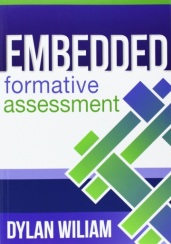It’s that wonderful time of year again. Exam classes leaving and everyone wants to claim some of your precious gained time. My favourite aspect is that I can take time to reflect on the year and start planning what I’d like to focus on next year and STILL travel to and from work while it’s light!
We tried out a few new things this year and my favourite has been a teaching and learning book group. This has been shared by some fantastic bloggers from @shaun_allison to @dan_brinton but I’m going to share a few points that you might want to consider if you are thinking of setting up a teaching book group.
Is it worth it?
If in doubt about whether it’s a good idea, stop doubting. It is. A book group is amazing for more reasons that you may have thought.
- It makes staff feel valued: They get books of their own, an opportunity to learn something new, to consider different viewpoints and share ideas.
- It will set off a buzz: There may be things people strongly agree or disagree with, techniques people have never thought of before or research that completely changes the way they think and teach. This buzz will spread as teachers start discussing things they have read or sharing ideas they have tried out.
- It is ongoing CPD: Just how ongoing might depend how book group members read it – do they dip in and out regularly or do a last minute readathon the weekend before the meeting! However, is does mean that throughout the year, each teacher will spend a considerable amount of time reading, trying out something new or reflecting. This is like being an NQT again but hopefully without the constant feeling of exhaustion (I don’t think that was just me!) Our book group has been composed of staff from a range of departments and experiences, including a member of SLT, but all have been in that stage of their career when their impact is apparently at risk of levelling off. (There has been a lot of discussion about this idea and the graph below but this post is not the place for it, see @pedagog_machine’s post http://bit.ly/1SR3iRC) I think the injection of thought –provoking reading and discussion is a great way to avoid this and get on the dotted line on the graph below.
- It is great value for money: Yes, there is a cost implication but when it boils down to it, you are investing in your staff and when you compare the cost of buying a few books to the cost of a day’s external training, factoring in the cost of cover, it is actually pretty cheap.
From David Weston’s (@informed_edu) presentation at Research Ed 2014.
Points to consider
So having run a book group for a year, there are a few points that it would be useful to think about:
- Budget: One of the selling points already mentioned is that a book group offers good value for money, but there is still a cost implication. I started by working out the cost per person based on a range of books, including a couple that were more pricey and others that were mid-range. The next question is where the budget will come from – does it come under CPD, or is there a library budget that could cover some of the cost?
- Keep or loan: The ideal scenario is for the book group members to be rewarded for their investment of time by being able to keep the books, but if the budget is really tight, perhaps you could buy a smaller number of each book and have a couple of smaller book groups that run on a rotation basis? That way, when they books are finished with they could end up in the library for other interested staff to refer to. Perhaps if this is the model you decide is best for your school, you could allow each book group member to choose their favourite book to keep at the end of the year. An alternative to keep the cost down might be to team up with a couple of local schools and agree to each buy a couple of sets of books that are shared between the three schools.
- Rules: This has been a tricky one for me. The idea of setting up the group is that the members are agreeing to commit to reading a book per half term but this has not always been possible. Staff may leave, take on a new responsibility or just not stick with it and this can be quite frustrating for whoever is leading the group. It isn’t possible to avoid this completely, but I have found it better to order the books after each meeting rather than buying them all in at the start of the year. I have also made a point of ensuring that the meetings are arranged and books distributed with a holiday available, for those people who don’t read as much during term time. I have also found it helpful to send out a reminder email a couple of weeks before the meeting for those last minute crammers!
- Book selection: This can be the most fun aspect but it is worth doing a bit of research before choosing your book each time. You may want to take into account the particular development priorities in your school, the areas of interest of your group members or the type of book that you read previously. As mentioned above, you may wish to order the books throughout the year and this can give you a chance to ask your book group to vote on the next book they would like to read. Our books for this year are listed below and some were popular with everyone, while others gave polar opinions.
- Sharing: Think about how you can share the findings from the book group. This is a fantastic opportunity to ask book group members to write a short article for a staff bulletin, post resources on a sharing board or even to ask people to run a short CPD session (like the Fifteen Minute Forum discussed by @shaun_allison in his fab book ‘Perfect Teacher-led CPD’ http://www.crownhouse.co.uk/publications/product.php?product=873). Another really effective strategy is setting up a blog for the book group so that staff can share their thoughts on the books with the rest of the school.
Book Selection
Teach like a champion: Doug Lemov
Full on Learning: Zoё Elder
The Hidden Lives of Learners: Graham Nuthall
Embedded Formative Assessment: Dylan Wiliam
Mindset: Carol Dweck
Practice Perfect: Doug Lemov, Erica Woolway, Katie Yezzi
The Lazy Teacher’s Handbook: Jim Smith
Trivium 21C: Martin Robinson














